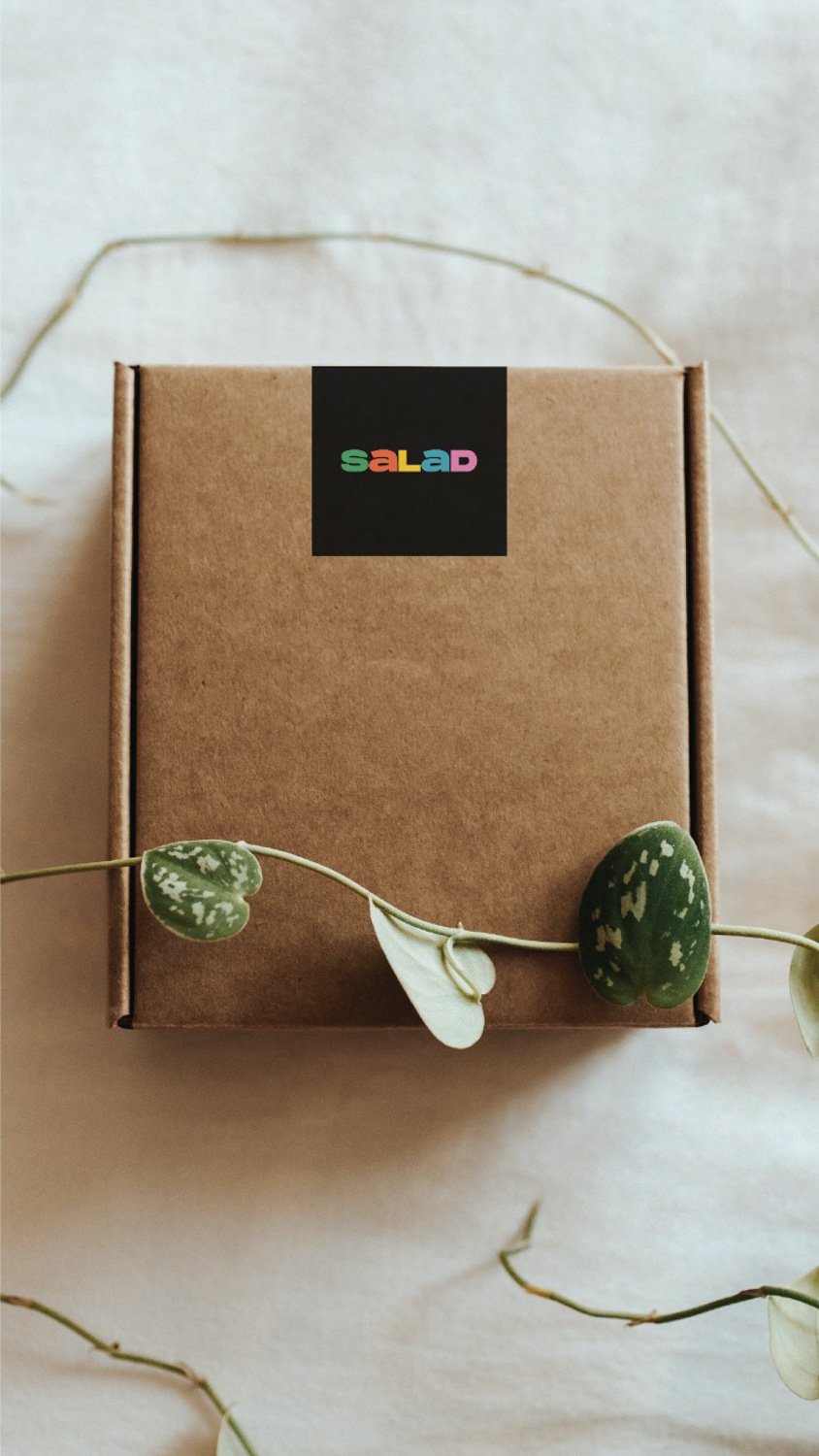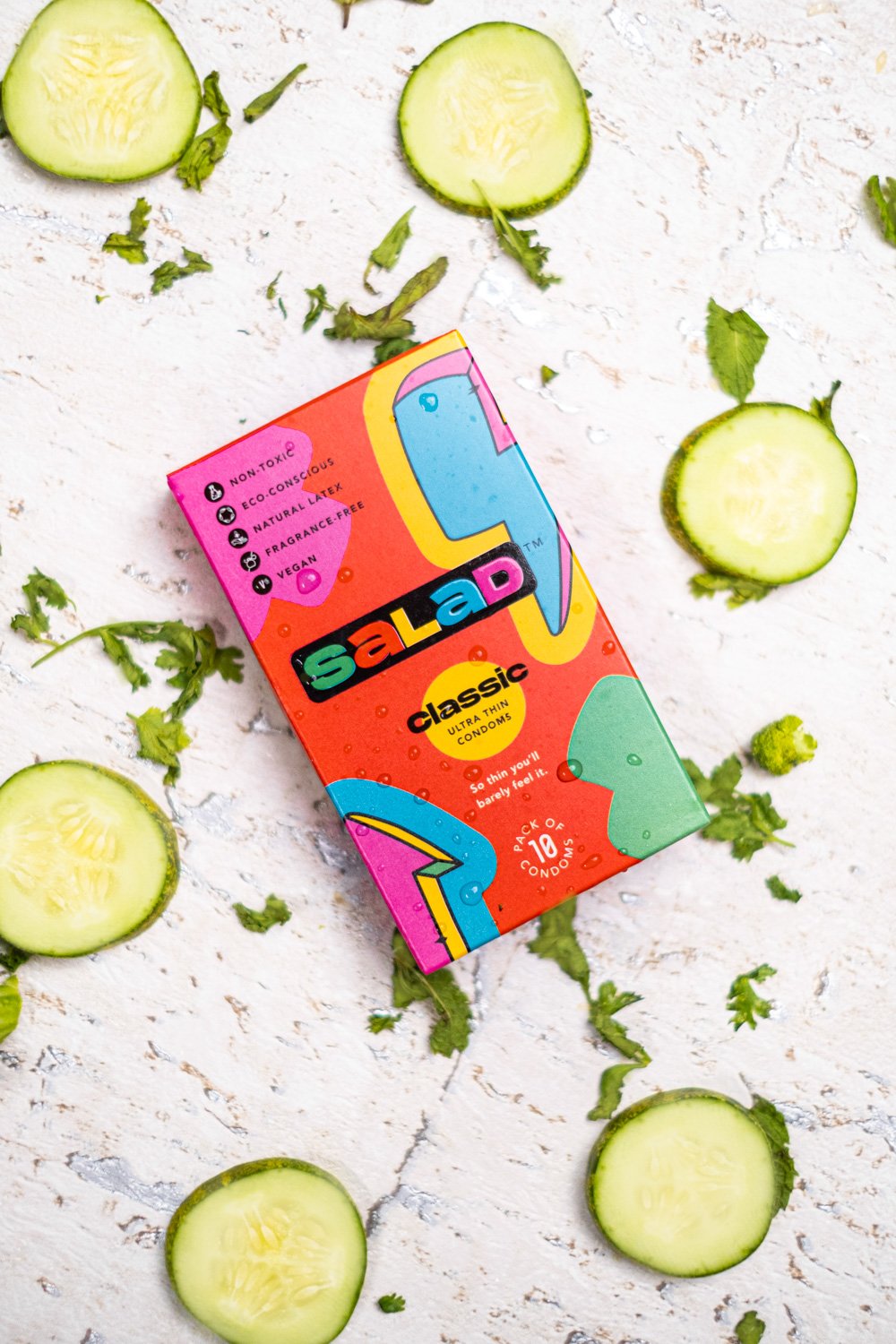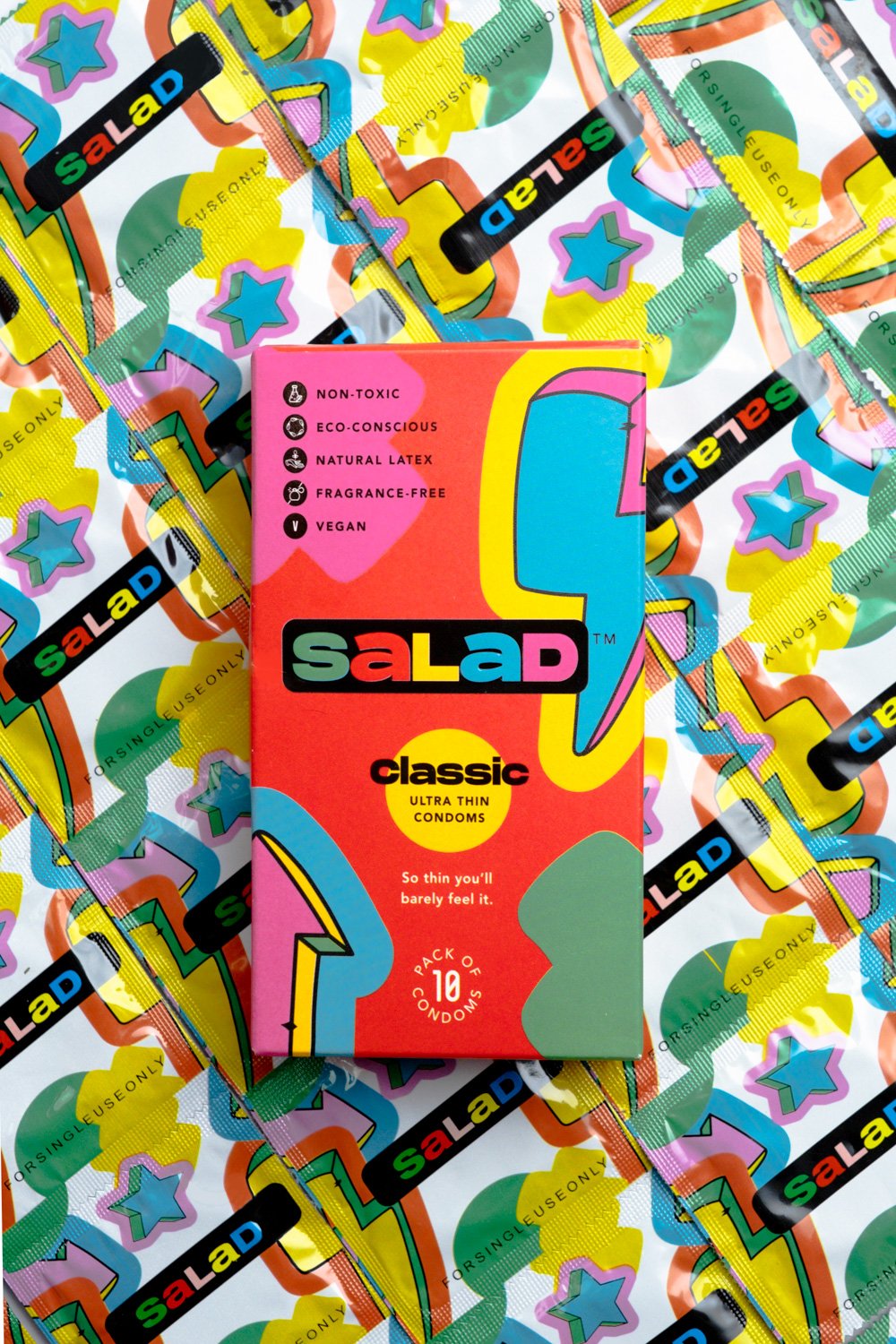Pass The Balsamic
In Conversation with Aruna Chawla, Founder of Salad Condoms
How did the idea of bringing vegan condoms to the Indian marketplace come about?
In 2020, I was studying the sexual wellness market in India and observed some patterns that made me dig deeper. Condoms are the cheapest, most easily accessible, and government supported contraceptive. However, condom use in India is abysmally low, at only 5.6% of the total population.
I interviewed people to help understand this statistic. Access to protection and embarrassment in procuring it, are huge issues. When people go to buy condoms they feel they need to find pharmacies away from their homes, shopkeepers throw judgmental looks, people around make you feel uncomfortable, even if you are doing the right, responsible thing. Movies like Helment and Janhit Mei Jari show this.
Salad – a health-first sexual wellness brand– came out of a desire to change this.
We love the name (and the packaging). Tell us a bit more about the genesis of this, please.
Condom brands focus on pleasure and the male gaze. Durex is the only brand that pays attention to the orgasm gap in India, and is taking steps towards orgasm equality.
But the focus on pleasure means that condom use becomes optional—if you don’t feel enough pleasure, you’ll discard its use. So, we decided to focus on health, and encouraging healthy sex habits in people.
We made sure to make our packaging fun. We want to make condoms something to show, not hide, and remove the shame around condom use- good packaging is real estate to that end. Our box has a QR code which directs customers to a page on our website that lists all the ingredients in our condoms. No other brand in India is transparent about the composition of their condoms.
There are Salad condom fans out there, and they are seriously loyal. What makes your condoms better than anything else?
We are ultra-thin with no added flavours or fragrances. This prevents allergic reactions and rashes.
But beyond that, we’re a brand that cares about their health and safety. 52% of our online customers are women. Our social media pages see a high engagement. We have grown through word of mouth because people not only love our products but also the values that we stand for. 15% of our profits are committed to enabling sex education in schools and colleges in India. By practicing a safer sex life, our customers can also contribute you to a healthier, safer India.
Who are your consumers? Do you see any patterns between them?
We are moving completely away from physical products by the end of June. In October 2022, we will be launching our mobile app that is currently under development.
Our consumers are 18-40 year old women, from Tier 1 and Tier 2 cities across India. They are English speaking and working professionals (full-time, part-time, or maybe on a break at the moment) and have some kind of decision-making capacity in their lives.
We want to help them access sex education and entertainment that is credible, reliable, and relevant without becoming overwhelming for them. This will help empower them in their personal and professional lives.
What are the biggest misconceptions around sexual protection in India?
Protection is only to prevent unwanted pregnancies. Every year, about 6% of the adult population in India is infected with sexually transmitted infections and reproductive tract infections. This is preventable if we start using condoms!
Men also need to take a more active part in contraceptive use. Vasectomies are almost non-existent even though they are reversible and safe for men.
Also, condoms do not cause the sperms inside the man to die! Many people incorrectly think that spermicide means that the sperms inside the man will die. Just to put it out there in case people still think that: that’s not how condoms work.
Tell us a bit about the focus on safety rather than pleasure. Is safety a harder sell? Or are millennials and Gen Z, in your opinion, more interested in safety than pleasure?
I have found that younger audiences, with their unlimited access to information, are well-informed and quicker to adapt to healthier habits. The older audiences whose opinions are set in hardening stone are tougher to convince.
Having said that, we have also found that information on the internet is overwhelming and not always credible. This has led to many false notions of health, safety, and pleasure. We’ve been working on fighting this and are now pivoting to a mobile app that will allow women in India to access credible, relevant, and reliable information at their fingertips.
Who has safe sex? (you can answer this as a rough percentage, or more abstractly)
Honestly, we don’t know. The younger ones are more aware however we’ve also seen common reluctance in using condoms. Safety isn’t just prevention of an unplanned pregnancy. It also includes prevention of STI transmission. Unfortunately, it’s more common to not bother about this at all.
A lot of news tells us that young people today are having less sex than young people of before. Why is that, do you think? Are you interested in seeing that change?
Similar research hasn’t happened in India, but it’s probably true. Mostly because:
We’re busier than ever before.
Long distance relationships have been made possible due to technology.
People are moving towards self-actualization as a relationship need.
There’s more comfort with masturbation.
Tell us a great, little fun story about sex behavior in India. Anything you’re comfy with.
Research shows that sex when you’re older is more satisfying!
I lead a community of women who want to understand their bodies better. Many in their later 30s-early 40s are experiencing increased libido. Initially, they were worried, and it took many conversations to get them to accept and then like these changes in their bodies. Now they happily telling us younger ones about how much sex they are having and how they’ve never felt better about their bodies! I think it’s amazing what a supportive community can do for women and their confidence!








